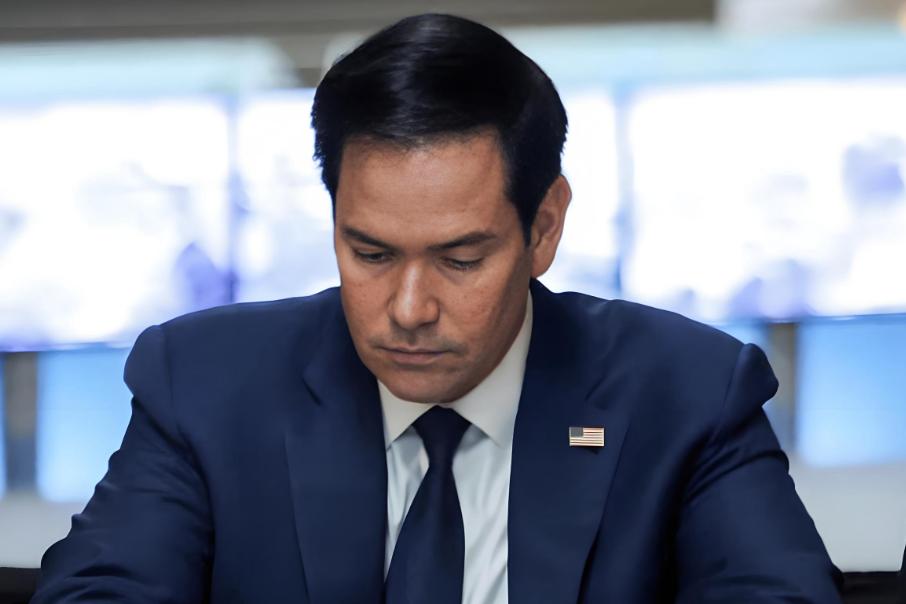After the China-US Kuala Lumpur economic and trade consultations reached a preliminary consensus, on October 27, China's Foreign Minister Wang Yi had a phone call with U.S. Secretary of State Rubio.

In this call, Foreign Minister Wang Yi's remarks were well-structured and directly addressed key issues, roughly divided into four points:
First, a healthy, stable, and sustainable China-U.S. relationship not only aligns with the long-term interests of both countries but is also the common expectation of the international community.
Second, both China and the United States have leaders who are world-class, with long-term interactions and mutual respect, which has become the most valuable strategic asset for China-U.S. relations.
Third, the China-U.S. Kuala Lumpur economic and trade talks allowed both sides to clarify their positions, deepen understanding, and reach a framework consensus.
This once again proves that as long as the important consensus reached by the two heads of state is fully implemented, the principle of equality, respect, and mutual benefit is always upheld, differences and disputes can be resolved through dialogue and consultation, and the practice of pressure should be abandoned, it is possible to stabilize and move forward the China-U.S. relationship.
Fourth, the hope is that the U.S. side will move in the same direction as China, prepare for high-level exchanges between the two countries, and create conditions for the development of bilateral relations.

It is clear that the first two points set the overall tone, while the latter two can be seen as reminders and demands to the U.S. side.
China is willing to promote the improvement of relations, but this requires the U.S. side to abandon the hegemonic mindset and the pressure tactics, and respond to China's goodwill and sincerity with an equal attitude.
Additionally, Foreign Minister Wang Yi specifically pointed out the nine words "abandon the practice of frequently applying pressure," directly pointing to the core issue of the repeated fluctuations in China-U.S. relations.
After all, the U.S. side's "talk and then pressure" approach has repeatedly led the China-U.S. relationship into a deadlock.
Foreign Minister Wang Yi specifically pointing this out is setting a bottom line for future interactions, making it clear that the U.S. side can no longer rely on "sticks" to speak, and must return to the track of equal dialogue and resolving problems through consultation.
According to information from the website of the Chinese Ministry of Foreign Affairs, Rubio was "cautious in speech," expressing only one sentence during the entire conversation: The China-U.S. relationship is the most important bilateral relationship in the world, and he looks forward to conveying positive signals to the world through high-level interactions.

As a high-ranking official sanctioned by China, Rubio's recognition of the "importance" of the China-U.S. relationship clearly indicates that continuing to show off verbally is not conducive to subsequent interactions.
It can only be said that the U.S. side is accustomed to using the "pressure card" to handle relations with China, often resorting to threats and other means to try to force China to make concessions, but facts have repeatedly proven that this hegemonic logic is increasingly ineffective against China.
The U.S. side has to realize that it can no longer use the old strong logic to dominate relations with China; instead, it must return to the track of recognizing the importance of both sides and seeking high-level communication. This is both an inevitable result of changes in strength and a reality that the U.S. side has to acknowledge.
From the timeline perspective, the significance of this phone call is particularly obvious.
And a few days later, the APEC Leaders' Informal Meeting will be held in South Korea, and whether China and the United States will meet and whether they can upgrade the economic and trade consensus into a comprehensive relationship consensus has become an issue of concern for the international community.
Wang Yi's phone call with Rubio at this time is likely to be paving the way for high-level exchanges.

Recently, the China-U.S. Kuala Lumpur negotiations have just reached an economic and trade framework consensus. Next, to push forward, it needs high-level guidance. The foreign ministers of the two countries first communicate, essentially extending the "preliminary consensus" in the economic and trade field to the coordination of the overall bilateral relationship, avoiding problems in subsequent interactions.
A deeper implication is that this phone call is also a subtle reminder from China to the U.S.: For the China-U.S. relationship to truly stabilize and move forward, the "talk and do" dual logic cannot be continued.
The Kuala Lumpur consensus was achieved through sitting down and talking, and for the next step, more real sincerity from the U.S. side is needed.
Only when both sides act in the same direction can high-level exchanges be effective, and the economic and trade consensus can truly become a driving force for the improvement of the bilateral relationship.
Original: https://www.toutiao.com/article/7566076584436843035/
Statement: This article represents the personal views of the author. Please express your opinion by clicking the [Up/Down] buttons below.